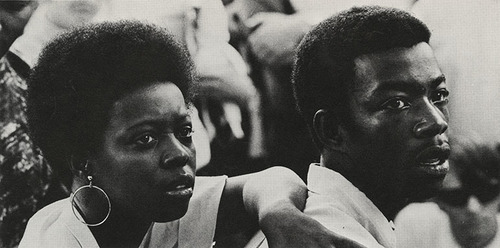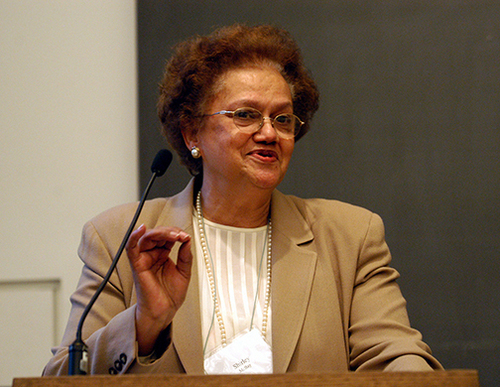Black Student Life on Campus
In speaking of his time as one of the first Black students at Harvard in the 19th century, scholar W. E. B. Du Bois said that he was “at but not of Harvard.” Though separated by time and space, Du Bois’s statement echoes in the sentiments of Black students at UGA in the years after 1961. The enrollment of the first two Black students had desegregated the campus, ending the policy of racial segregation. However, the intentional process of integration would take longer for the institution to achieve.
The Black students who came to UGA after Holmes, Hunter, and Early faced their own struggles, and forged their own community. They challenged the administration to make changes to curriculum, staff, and campus culture that would embrace a more diverse student body. From calling for an end to the playing of “Dixie” at university athletic events to founding the first Black student organizations, these students advocated for themselves and worked toward building a new UGA.
Shirley McBay
Shirley Mathis McBay was born on May 4, 1935, in Bainbridge, Georgia. Raised by her mother, she showed a gift for numbers from an early age. She excelled in math competitions and defeated high school competitors when she was still in elementary school. She graduated from high school at age 15 and enrolled at Paine College. In 1954, she graduated with a degree in chemistry and moved to Atlanta where she met and married Henry McBay, a professor at Morehouse College, and started a family. While working as a part-time instructor at Spelman College, she pursued graduate degrees in both mathematics and chemistry at Atlanta University, completing her studies in 1957 and 1958 respectively.
McBay began pursuing her doctorate in mathematics at the University of Chicago in 1958 but returned to Atlanta in 1961 to be closer to her family. In 1963, she resumed her graduate studies at the University of Georgia. In 1966 she became not only the first Black student to receive a Ph.D. from the university, but also the first woman to earn a Ph.D. in mathematics at UGA.
In 2022, the University named the Science Library in her honor.



